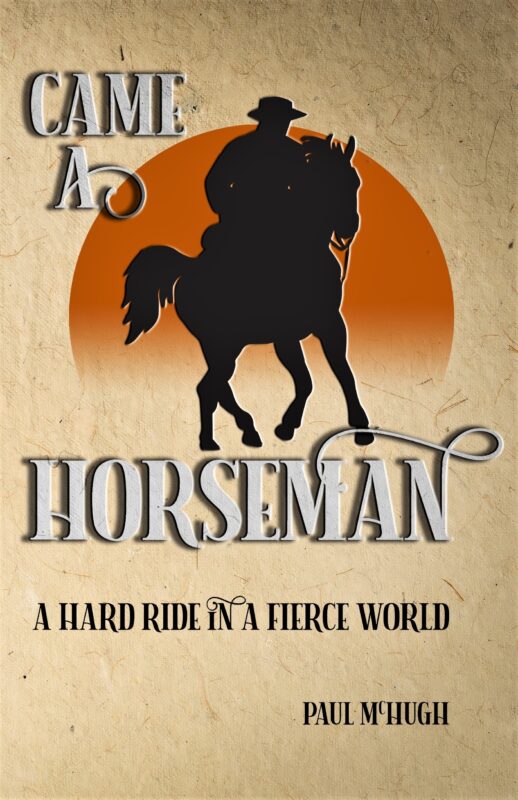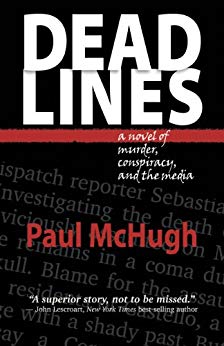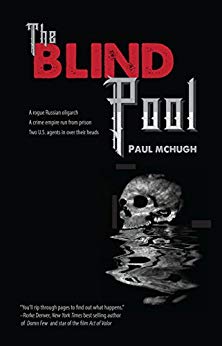
What’s so “meta” about a metaphor? Well, a bunch.
Of all tricks and techniques a writer is able to deploy, nothing delivers more bang for the buck than a well-crafted metaphor.

In fact, you can spot a wee metaphor in that sentence just above. My targeted phrase also enjoys the mixed blessing of having become a shopworn cliché. But let’s slap some paddles on its tiny chest to see if we can shock some life back into the sucker.
That “bang-for-the-buck” meme won its launch in the 1950s, as a talking point for U.S.A. Secretaries of Defense. It provided an easy shorthand for summing up the ROI (return-on-investment) for various weapons. Especially, large and destructive explosive devices.
You see, that decade was the dawn of our Atomic Age and so a creche for the ensuing Cold War. The pooh-bahs of our military-industrial complex liked to deploy language that made them sound masterful—though deft at a common touch—whilst minimizing the true horrors they spoke about. Or, sought to sell us on. (Wow, two dangling prepositions in a row! My scribbling skills are on the rise…)

In a famed Kubrik film, his darkest comedy, “Dr. Strangelove,” a character named General Turgidson might’ve deployed a phrase such as this in his medley of buffoonish rants. “Compared to an atom bomb, President Muffley, does a thermonuclear device give you more bang for your buck? Absolutely!”
And human skeletons all aglow, genuine or implied, get pushed aside by the warm colloquialisms that find a home in this brisk metaphor. “Bang” suggests a colorful entertainment, similar to a Fourth of July firecracker. “Buck” is simply the way we common, unpretentious, ordinary country folk refer to a taxpayer’s dollar.
Right after using that phrase, a Congressman might continue: “In sum, to all of you listening here today, we wish to ensure that every single penny of the taxes that each of you pay from your paltry and often declining income gets well spent to thwart all those nasty, looming, Commie evil-doers out there. And that’s what you elected us to do, true?”
After which, he trots backstage to collect campaign contributions from lobbyists for, say, Northrup, Boeing, Aerojet and Raytheon.
TO CONJURE YOUR OWN EQUATION
Any good metaphor holds two sets of ingredients. Actually, it contains one set, then summons another. The first is the poetic equation itself; the second a cloud of connotations that enrich it.
But please note: a metaphor absolutely must function as an equation. It insists that you use an “equals” sign as you mentally blend its elements to extract the meaning. It does not waste time or invoke distance by using a “like” or “as”—commonly deployed in a lesser figure of speech known as a simile. (More on similes in a bit.)

When Shakespeare says, “All the world’s a stage,” he aims for that connection to become as firm and unyielding in your mind as the click of a coupling betwixt rail cars. Once it snaps in place, all of the theatric associations come swarming in to fit themselves around the core equation like molecules aligning around a seed crystal: the smell of greasepaint and roar of the crowd, the Potemkin Village sets, the contrived stimuli and manipulated emotions, the costumes and disguises, the sound effects or music, the role-playing, the furtive prompts, etc.
Terms that academics presently bandy about for these integers of metaphor are many and varied. Some are “tenor and vehicle” (Richards) or “metaphrand and metaphier” (Jaynes). You are welcome to research these and utilize them as you will. But hey, right now you’re dealing with my own personal column. I aim not only to keep its themes simple, but also to parse the phenom in my own terms. So, for the nonce, let’s stick with using equation and connotation, shall we? These terms also have an advantage: they’re just frigging plain, simple English. Not fey lumps of Philologist-Speak.
All righty, let’s look once again at that “more bang for the buck” phrase.
HEY, IT’LL BE ONE HELLUVA BLAST
It’s a conceptual metaphor, along the lines of “time is money,” which enlarges a notion by linking or eliding it with a different idea. The verb “is” —and the various forms of “to be”—function as our language’s most obvious and forthright “equals” sign.

Yet the quid pro quo as stated in “bang for the buck” manages to brandish its own type of strength without using an equals sign at all. Boosted by that punchy, monosyllabic alliteration, clouds of association flow toward the construct in the following fashion: you, the listener (or reader) need not fear the bang—ain’t so big, ain’t so loud, nor so destructive as one might dread. It actually might end up as part of a pretty entertaining show. Furthermore you needn’t be dismayed by the cost; it’s only a lousy buck, see, and you’re receiving great value, since there shall be a lot “more” bang that you score in return for your meager expenditure.
Unfortunately, our verb, “to exaggerate,” owns no great antonym. To minimize? To understate? Neither of these quite does the job. Yet a potent antonym is exactly what we need to fully unpack this metaphor. Perhaps, “to trivialize” can turn that trick?

The “bang for the buck” phrase as deployed during its Cold War heyday gained much of its force by mocking two things so that it could then proceed to dismiss them as issues: a prospect of thermonuclear war, and our metastasizing defense budget.
Typically, a metaphor gains its power via revelation of truth. But in this case, the metaphor achieves all its oomph as an adroit and affable lie.
Over time, that metaphor then proceeded to devolve into its current status as a rather boring cliché. It grew more accurate in its use even while its force evaporated. You can now imagine the phrase quite easily as a motto for a crappy, bottom-feeding car lot or perhaps a discount shooting range. Well, in those situations, one does indeed get “more bang for the buck.”

But way back when it was conjured up, during in its period of fraught genesis? As it was used in the 50’s and 60’s? It had the heft of a Nazgûl quoting from a deceptive memo handed down by Sauron.
So!
Do we perceive now how much power a metaphor might still hold? Even after it’s turned rather tired and trite and old?
ALL WE ARE SAYING…
Let’s put the memes of global conflict on hold for now. You know, give peace a chance.

In her excellent recent novel, “The Tree Doctor,” author Marie Mutsuki Mockett performs some fine moves with a metaphor about two-thirds of the way through. Before I cite specifics, allow me to first say this meditative book is, in and of itself, one big metaphor. In the story, our unnamed central character gets saddled with several layers of problems: a world swatted on its ear by the Covid pandemic; an aged mother withering away in a rest home; enforced separation from her family; numbness in her marriage; and a feeling of being lost within her own slowing body and middle-aged lifestyle. She strives to grapple with these issues simultaneously—if not quite solve them all—by focusing on rescuing and restoring the garden of her childhood home. And yeah, the cream of the jest is that a new lover who catalyzes those improvements is the Tree Doctor, ostensibly visiting to help her out with that garden.
Evidently nurture, like arousal (as psychologists of the Behavioral School used to claim!) is non-specific.
In one of her metaphors that I particularly enjoy, Mockett says, “Her mother shuffled toward her, and she felt emotion surge from her body as though she were the surf and her mother the shore.” If you simply hang out with that line for a moment or two, you’ll likely be able to anticipate everything I’m about to say next.

This sentence sits right on the border between metaphor and simile since Mockett uses “as though” for her equals sign. Nonetheless, her equation still functions exactly like one with a “=,” due to the fact that its imagery is so simple, potent, and apropos. Yes, emotions do surge, just as surf does. We get carried along by waves in the same way that she feels swept toward her mother—even if her mother is the one who is physically in motion, not the daughter.
And then, one paragraph later, Mockett cleverly reverses her own metaphor, as that daughter realizes that the pandemic protocols shall prevent her from making the sort of contact and connection with her Mom that she longs for. “And so it was not as though her mother were the shore and she the ocean, now racing to reach home.”
Here’s your payoff. The surge of the sea is as inevitable and irresistible as the love between mother and daughter. And yet that inevitability has been thwarted. Feelings of frustration thus grow palpable for the reader.
MORE METAPHORS OF MINE OWN

My own most recent novel, “Splinter,” is an epic World War II story set in Norway in 1940 at the launch of the Nazi invasion and the birth of Norway’s Resistance.
Due to my commentary high above on that “more bang for the buck” phrase, one might guess that I’m some kind of total peacenik. Well, for the record, I AM a peacenik. I admit it. Just not a total one. I fully subscribe to Winston Churchill’s apocryphal comment that “Jaw, jaw is better than war, war.” Warfare is one of the most horrid and tragic insults that humans can inflict on one another. Glorifying such mayhem is a job for knaves and fools. Once people begin to wallow in rage, savagery and violence, once we aim all of our splendid gifts of intelligence and will at causing harm and wreaking vengeance, hell swings wide its gates and the grotesque lords of havoc beckon us to plunge ever deeper. Demons guffaw whenever the pious cite “rules” of war. There are usually none, as the current shambles in Gaza make obvious.

That said, if your homeland gets wantonly and brutally invaded by the likes of Vladimir Putin, rolling onto your back and putting your paws in the air doesn’t seem a proper response to me. The vigorous Resistance I grew aware of in Norway I deem a far more appropriate answer. Yet in my portrayal of it, I make it clear that high tolls must be paid, even when righteously standing up to a vicious tyrant.
In the opening scenes of “Splinter,” I tell of a German flagship that gets sunk on the morning of April 9. This vessel leads one of six task force fleets that attack all the major port areas of Norway in a single go. The ship, which I dub the Mehrlicht (based on a genuine battle cruiser named Blücher) is smacked by two direct hits from the cannons of a Norwegian fort but manages to sail onward, till it receives two more hits from a land-based torpedo battery.
My text: “The warship continued steaming up the fjord at flank speed—a gray giantess who swam on with her long and tumbling locks of smoky hair interwoven with crimson ribbons of fire.”

The poetic equation here is: warship = giantess. This derives directly from the traditional visualization of a ship as a “she,” an entity in its own right, one that must be courted and served, a grand personage to whom the whole crew considers itself married. Take excellent care of your seagoing bride, and supposedly at minimum she’ll ensure that you keep afloat.
However, this German ship has invaded Norwegian waters and is being transformed by that passage; she’s entered a land of gods and giants, trolls and pixies. She’s not at ease with the transition, there’s already a steep price to pay, her hair’s alight and she’s trailing smoke. She might swim strongly along at the moment, yet her chances of making port seem uncertain at best.
Near to the text above I also offer a simile: “Rounds from Mehrlicht whacked into Fiktiv’s main gun and sent scraps of shrapnel and chunks of concrete whirling about the battery like deathly scimitars.”

In this case, scimitars and shrapnel are too unalike to merit an equals sign. For one thing, shrapnel is ragged and random in shape and size, whereas scimitars (Arabic swords) appear both artistic and symmetrical. The only way in which they could be similar lies in their power to inflict wounds. So, the equation of that sentence must be mitigated or deflated to be sensible, and to coax a reader to focus on that single aspect of commonality. The correspondence isn’t complete; therefore, the writer asks his reader to contemplate it just in part. Our classic distancing word, “like,” ably assists in that task.
METAPHOR MAGIC CAN INFUSE ALL LANGUAGE
A beauty of the English language—and most likely all human tongues—is that individual words, by themselves, can work in a metaphoric way. And indeed, our most vivid and useful words often do that. Here’s a nearby example: using the word “tongue” to stand in for a language. Another: using the phrase “stand in” as an alternative to “substitute.”
I’ll try to prove—or at least improve—that point by making it a few more times, using this essay as a test case. All righty, then… Let’s start at the top.

“Slap some paddles on its tiny chest” invokes the drama of an ICU crash cart, defibrillator included, then renders it cartoonish by adding the adjective “tiny,” yet ultimately still tries to summon the image of a faltering phrase being shocked back to life.

A few more paragraphs down, I speak of the technical, academic terms for the parts of metaphor as “fey lumps of Philologist-Speak.” I particularly like this phrase for the way it couples fey (meaning over-refined, strange, even a tad wacko) with lumps (suggesting something inert, shapeless, incomprehensible). Y’know, I myself was once poised to be abducted into the academic towers, where I too could’ve engaged in endless bouts of polysyllabic folderol. But I escaped. Meaning, I now can turn about to mock the entirety of that stratospheric realm, including its goofy hats.
Let’s finish up with, “bottom-feeding car lot.” This phrase is so strained, it ought to arrive wearing a truss. It reminds me of Sam Johnson’s critique of Donne’s poetry: “The most heterogeneous ideas are yoked by violence together.” What on earth does a bottom-feeder (think of muck-slurping catfish) have to do with a plaid suit clad sharpy shoving beater automobiles into the hands of deadbeats? Well, could be, everything.
Which only goes to show that one can over-use metaphoric language and make a text too vivid. In the same way that one can beat a topic like metaphors to death through over-analysis.
You can take my words for that.








